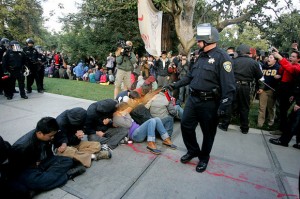Below is a contributed post from my friend in Taiwan Bill Stimson. This post was printed yesterday in the Taipei Times.
Taiwan Matters
by William R. Stimson
For the U.S. to stop defending democratic Taiwan from China’s military in return for the $1.14 trillion of America’s debt that China holds? That so harebrained a scheme made it onto the op-ed page of the New York Times this past week shows that there are those who really believe the myth that with China looming ever bigger on the horizon, Taiwan assumes less and less strategic importance. Nothing could be further from the truth.
That China is on course to becoming tomorrow’s superpower is not the issue at all. The issue is that if this super-powerful China of tomorrow thinks and acts anywhere near the way it does today, it is on a collision course with the interests of the rest of the world – and, as we can already see beginning to happen today, the rest of the world can very easily come out the loser. China does not play by the same rules as everybody else. It cheats on everything, bullies everybody, and demands that far and wide the lies it defines as truth be seen as true. Its Nobel Peace Prize winner sits in jail – as do so many of its noblest spirits who have dared to fight illegally polluted lakes, censorship, official corruption, and the like. The line we hear from China’s leaders, not too different from what we hear from dictators everywhere, is that these reformers and protestors seek to impose on China alien outside ideas and norms that have no place in a Chinese society or a Chinese culture. Taiwan’s existence as a real free market Chinese economy, thriving Chinese democracy and two-party Chinese system – a sovereign and independent Chinese republic whose Chinese people enjoy all the basic human rights and freedoms as do those who live in America or Western Europe shows China’s party line to be a lie and by doing so lights the way for another path of development China might pursue. For this reason, Taiwan matters.
It is very much in the world’s and in America’s strategic interest to protect Taiwan’s right to determine its own destiny. Whether Taiwan becomes part of China or not is much less important than that the Taiwanese themselves, and only the Taiwanese, make that decision. This is what China actually fears more than Taiwan’s independence – that the example might be made, the idea might get out, to the far-flung corners of the People’s Republic that the power can come, should come, and deserves to come from the people themselves. This idea very badly needs to get out if the culture, economy, and political system of tomorrow’s super-powerful China is to more closely resemble a global leader that can be a co-operating partner and friend to the world and to America, not a more powerful, selfish, and conniving adversary than it is today. And so Taiwan’s strategic importance is out of all proportion to its small size and unfairly marginalized role in today’s world. Like a catalyst, it has the power to change everything all around it.
Trade this possibility in for a piddling $1.14 trillion? The idea of ditching Taiwan for money is absurd. By publishing the piece the New York Times did us all a wonderful service by showing the festering depths of the economic determinism that has crept into and corrupted America. Were America to ditch Taiwan, it would be ditching just about the only thing it has left – its core values. Because of a narrow-minded focus on material gain on the part of more than a few, it has already ditched its own economy and that of the free world, ditched the future of the promising young men and women pouring out of its universities and universities everywhere, ditched its worker’s jobs and with them its competitive edge in so many manufacturing technologies, and even ditched the pretense that it is a democracy as the very bankers it bailed out spend the billions given them to buy up its elected officials.
It’s time Americans as a whole stood back and took a look at their currency. The faces on it are those of George Washington, Alexander Hamilton, Thomas Jefferson, Benjamin Franklin, and Abraham Lincoln. The vision of these men, not money, is what America primarily stands for, and what America has to give, not just to the disenfranchised and downtrodden in China and everywhere – but, as the Occupy movement demonstrates, to those at home as well.
In Asia, Taiwan stands in a unique way for everything America’s founding fathers believed in and it deserves America’s support, today and in the future.
* * *
William R. Stimson is an American writer who has lived in Taiwan for nine years now.

Comments